Business Tort Litigation
What Are Business Torts? Common Cases You’ll Encounter
The majority of business owners in Columbia, SC, operate their companies with integrity and fairness. Unfortunately, there are times when dishonest business actions arise and potentially escalate into business torts. If you've been the victim of such a situation, remember that you have the right to pursue damages through legal means. Our business tort litigation attorneys are here to assess your case and guide you toward the best course of action for a successful outcome.
Business Torts Explained
Also known as "economic torts," business law torts refer to wrongful acts committed against business entities that result in, or are likely to result in, some kind of financial loss.
While personal injury claims focus on harm to individuals, business torts center on injuries to business interests. These torts can harm a company's reputation, business relationships, or intellectual property. Although they are civil wrongs and not criminal offenses, some business torts may arise from conduct that could lead to criminal charges against the wrongdoer.
Consequently, business tort cases revolve around the defendant's responsibility for the damages suffered by the plaintiffs. In seeking resolution, arbitration or mediation are often employed, but if these methods fail, the cases may escalate to civil litigation.
Examples of Business Torts
There are numerous ways in which a business may sue another party under business law tort. Common examples of business torts include, but are not limited to:
Tortious interference: involves deliberate and unlawful actions that disrupt a company's contractual or business relationships, such as causing a party to breach a contract or impeding their ability to fulfill it.
Unfair competition: occurs when businesses compete on unequal terms due to the application of favorable or unfavorable conditions to certain businesses while excluding others.
Commercial disparagement: involves making false statements about the quality of goods or products, leading to a loss of business for the plaintiff.
Breach of fiduciary duty: A fiduciary is a person or entity entrusted with a duty of care to another party, known as the beneficiary. The fiduciary has a legal obligation to act solely in the best interests of the beneficiary. Such relationships can arise in various contexts, including business contracts or partnership and shareholder agreements.
Theft of trade secrets:The unlawful accessing of proprietary business information to gain an unfair competitive advantage over a business.
Remedies for Business Tort Claims
Remedies in tort claims can be legal or equitable. Legal remedies mostly come in the form of monetary damages, while equitable remedies usually involve some sort of injunction.
Legal Remedies
Commonly known as damages, which serve as compensation for victims of tortious liability, addressing the injuries and losses they have incurred. These remedies aim to alleviate the impact of the breach on the victim. Damages can be categorized into general and special damages.
General damages refer to intangible and non-monetary losses the victim suffers, such as reputational damage in business tort cases. On the other hand, special damages are designed to compensate for the specific financial losses incurred by the plaintiff. Special damages must be proven with specific evidence, such as lost profits.
Equitable Remedies
An injunction involves issuing a court order that compels a party to either perform a particular action or refrain from doing something. Injunctions are typically awarded when monetary damages are insufficient to compensate the plaintiff for their losses. They can be mandatory, requiring a specific action, or prohibitory, forbidding certain conduct. Other equitable remedies include restitution and specific performance.
Assisting Businesses in South Carolina
Business torts have the potential to inflict significant damage on a business's reputation and disrupt its daily operations. Fortunately, there are legal avenues for businesses to pursue justice and seek compensation for the losses incurred due to these wrongful acts. Whether it's a breach of fiduciary duty, tortious interference in contracts and business relationships, fraud, or another type of business torts, filing a lawsuit can help your business recover.
By taking legal action, you can hold responsible parties accountable and ensure your business is fairly compensated, both for losses experienced and for any future impacts resulting from these tortious acts. If your business has suffered due to business law torts, seeking guidance from business litigation attorneys can provide essential support in navigating the legal process and protecting your company's interests.
Our business litigation attorneys at HHP Law Group handle business tort cases in South Carolina. If your business has been adversely affected by business torts, we are here to provide the necessary legal guidance and support. Contact us today to begin the process of protecting your business and seek the appropriate remedies for harm caused by business law torts.
FAQs
What are my contractual rights and responsibilities?
In general, a contract is a verbal or written agreement, where one party gives some sort of consideration, usually money, property, or a service, in exchange for receiving in return a service or property. A party’s rights and responsibilities under a contract are generally set out and governed by the terms of the contract, which can be extremely complex. Our experienced contract dispute attorneys at the HHP Law Group have litigated these rights and responsibilities on behalf of our individual and business clients. We also draft and review proposed contracts for our clients to hopefully avoid future litigation. If you have a question about a contract, please contact the HHP Law Group today.
What is interference with a contract?
In South Carolina, an individual or business cannot knowingly and intentionally interfere with the contractual relationships of another individual or business. If it can be proven that this was intentionally done and caused a breach of a contract and damages, the impacted individual or business may have a legal claim. If you believe your contractual relationships have been interfered with by an outside party of a competitor, please contact the HHP Law Group today.
Is my covenant not to compete valid?
Many employment contracts in South Carolina include a provision where the employee promises not to work in that field for a specific time after his employment with that employer ends. These “covenants not to compete,” are controversial but are enforceable under South Carolina law if certain conditions are met. HHP Law Group attorneys have experience arguing for and against enforcement of these provisions. If you have a question about the enforceability of these provisions, please contact the HHP Law Group today.

